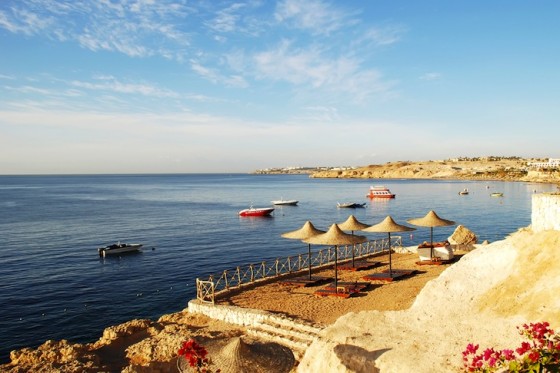 Just months after announcing that the ruinous scheme to construct a land and sea bridge between Saudi Arabia and Egypt is still on track, officials from both countries have jointly pledged to protect the Red Sea and its compromised ecological bounty.
Just months after announcing that the ruinous scheme to construct a land and sea bridge between Saudi Arabia and Egypt is still on track, officials from both countries have jointly pledged to protect the Red Sea and its compromised ecological bounty.
Ministers from seven countries that participated in the 15th session of the Regional Organisation for Conservation of the Environment of the Red Sea and the Gulf of Aden (PERSGA) met recently in Jeddah to discuss climate change, development, improved waste management facilities and programs, and other threats to the Red Sea’s fauna and flora, Al-Shorfa reports.
During the meeting, Egypt and Saudi Arabia signed an agreement that they would both devote expertise, research and training to the mutual goal of promoting their shared water’s health; they have also announced their commitment to understanding what changes to expect as a result of rising global temperatures and subsequent climate disruptions.
At least, this is what Prince Turki bin Nasser bin Abdulaziz, head of the kingdom’s Presidency of Meteorology and Environment Protection told the paper.
“Efforts are under way to maintain a clean environment for the Red Sea and life in it, especially in Saudi Arabia, to preserve its natural beauty and resources,” he said.
Jameel Hassan of the department of wildlife studies at the Egyptian Ministry of Environmental Affairs chimed in as well with a commitment to developing nature reserves and ecotourism.
So far, however, Egypt in particular has failed miserably to protect any of their coastal areas from human encroachment.
Head north to the Mediterranean and you will find miles and miles and miles of semi-developed holiday homes constructed with concrete, and without proper consideration for sewage, etc.
Saeed Basyouni from the Tourism Development Authority adds that new recycling facilities will be built as part of the scheme and old ones will be resurrected.
All of this is great, but fails to consider the ways in which the land and sea bridge is expected to cause considerable harm to the Red Sea’s ecosystem.
Part of the bridge will be constructed right on the Ras Mohamed National Park, we reported in an earlier article.
”If they build this bridge, coral reefs, endangered species and at least 22 dive sites will all be gone,” Ibrahim Mohamed, an activist with the anti-bridge group IBRedSea told us last year.
Still, the fact that there is even dialogue about the issues signals enormous progress.
:: Al-Shorfa
Image of the Red Sea at Sharm el Sheikh, Shutterstock

The fact that both countries have a miserable track record in ecological conservation gives me zero hope that environmental assessments are regulations will be followed. International bodies need to step in. There should be maritime protection laws when such massive projects are undertaken between nations. Don’t we all have a say in what happens to the Red Sea? Can coral reefs, dolphins, sharks, fish, pristine beaches, belong to any one nation or people?